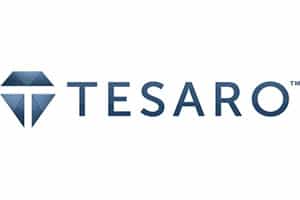 Some ovarian cancer patients in England and Wales will soon be able to access Tesaro’s once daily, PARP Inhibitor Zejula (niraparib), following a recent approval by the National Institute of Health and Care Excellence (NICE).
Some ovarian cancer patients in England and Wales will soon be able to access Tesaro’s once daily, PARP Inhibitor Zejula (niraparib), following a recent approval by the National Institute of Health and Care Excellence (NICE).
The drug, which was the first oral medicine licensed in Europe for use in women with and without a BRCA mutation, is available via the cancer drugs fund (CDF) for patients with recurrent platinum-sensitive ovarian cancer.
More specifically, the UK’s cost effectiveness watchdog recommended that Zejula should be used in women with a BRCA mutation who have received two lines of chemotherapy and in women without a BRCA mutation who have received two or more lines of chemotherapy.
Orlando Oliveira, senior vice president and general manage of Tesaro, said: “Through close partnership with both NICE and NHS, Tesaro can now offer Zejula as an option for second-line maintenance treatment, regardless of a patient’s BRCA status.”
Patients with this type of cancer typically have a poor outlook due to late diagnosis – with 60% of women diagnosed in an advanced stage.
Although significant progress has been made in the treatment of ovarian cancer, the disease recurs in approximately 85% of women with advanced ovarian cancer.
According to OCAM, around 7,400 women are diagnosed with ovarian cancer each year in the UK, and of these, around 15% will have a germline BRCA mutation.
Jonathan Ledermann, professor of medical oncology at the University College London Cancer Institute, said: “Recurrent ovarian cancer is an aggressive form of cancer where a key goal of treatment is to keep women in remission and off chemotherapy for as long as possible.
“Zejula offers the chance to delay this cancer from returning or progressing for months, and possibly years in some cases.
“Crucially, this decision opens the door for many women who, until now, have not had the option of maintenance treatment with a PARP inhibitor.”
In clinical trials, Zejula has been shown to keep ovarian cancer at bay up to twice as long as chemotherapy alone in women with a gBRCA mutation (9.3 vs 3.9 months PFS), and almost four times longer for those with a gBRCA mutation (21 vs 5.5 months).
This is chalking up to be a substantial win for Swiss biotech Tesaro, who said they are “pleased” with the outcome while it waits for the overall survival results – and if all goes well with that data, Zejula could be recommended for routine use.
However, if that becomes the case, then Zejula will go up against AstraZeneca’s Lynparza (olaparib), which is already recommended as an option for treating adults with relapsed, platinum sensitive ovarian, fallopian tube or peritoneal cancer who have BRCA1 or BRCA2 mutations.




